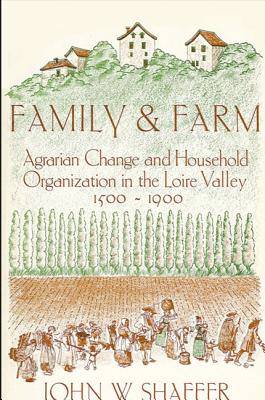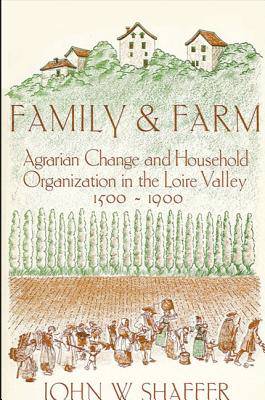
- Retrait gratuit dans votre magasin Club
- 7.000.000 titres dans notre catalogue
- Payer en toute sécurité
- Toujours un magasin près de chez vous
- Retrait gratuit dans votre magasin Club
- 7.000.0000 titres dans notre catalogue
- Payer en toute sécurité
- Toujours un magasin près de chez vous
Family and Farm
Agrarian Change and Household Organization in the Loire Valley, 1500-1900
John W ShafferDescription
Family and Farm is the history of the communautes, the large patriarchal households of central France, from the close of the medieval era to the nineteenth century. These households were unique in that they often included as many as twenty members, holding property in common. Far from having roots in any cultural bias or folkloric tradition, the communautes were organized to enable individual families to meet the demands imposed by the social, economic, and physical environments in which they lived. The book examines household composition, the role of kinship, inheritance and successive strategies, and the nature of interpersonal relations.
The period covered by the study includes the collapse of feudalism, the rise of the modern state, the French revolution, and the emergence of agrarian capitalism. Each crisis posed fundamental problems of survival for peasant families, and the organization of households constituted a crucial means by which that survival was ensured.
Spécifications
Parties prenantes
- Auteur(s) :
- Editeur:
Contenu
- Nombre de pages :
- 258
- Langue:
- Anglais
- Collection :
Caractéristiques
- EAN:
- 9780873955621
- Date de parution :
- 30-06-83
- Format:
- Livre relié
- Format numérique:
- Genaaid
- Poids :
- 480 g

Les avis
Nous publions uniquement les avis qui respectent les conditions requises. Consultez nos conditions pour les avis.






